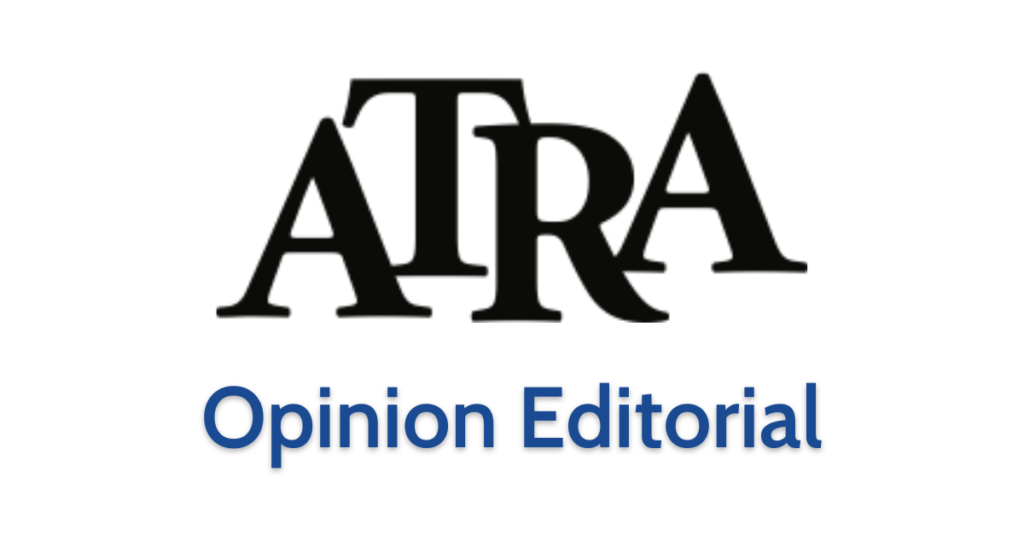‘Highly Unusual’ Rehearing of Louisiana Case Raises Judicial Independence Concerns
Louisiana Supreme Court Waffles Under Political Pressure, ATRA Brief Urges Court to Stand Strong

Plaintiff-friendly courts tilt the scales of justice at will.
This op-ed was originally published by Broad and Liberty.
Pennsylvania just became home to the country’s largest single-plaintiff Roundup® verdict. Last week, a Philadelphia Court of Common Pleas jury awarded an eye-popping $2.25 billion verdict in a case brought against Monsanto, alleging that a plaintiff’s use of Roundup caused him to develop non-Hodgkins lymphoma. While many Pennsylvania outsiders were shocked by the sheer volume of the award, those familiar with Philadelphia courts are less surprised.
The state is already known as one of the nation’s top spots for trial lawyers, and Philly’s Court of Common Pleas is infamous for delivering so-called “nuclear” verdicts by providing plaintiff-friendly jury instructions and maintaining low barriers of entry. But the Pennsylvania Supreme Court further smoothed the path for plaintiffs’ lawyers to flock to Philly, even when the city’s connection to their case is tenuous at best.
The reality is the state’s courts are lucrative havens for litigation — Philadelphia’s Court of Common Pleas and the Pennsylvania Supreme Court were even named the No. 1 Judicial Hellholes of the year.
Judges in Philly bend, and in some cases outright ignore, court rules, tilting the scales against defendants. Following the high court’s recent decision in Hangey v. Husqvarna, which eliminated a critical jurisdictional barrier, things are about to get even rockier in the Keystone State.
Look no further than medical liability litigation for a stark illustration of the real consequences of shifting jurisdiction requirements. Since the Pennsylvania Supreme Court eliminated the state’s venue rule for medical liability cases in 2022, filings in Philly nearly doubled in 2023. This flood of cases overburdens the courts, drains resources, repels businesses, and, ultimately results in job loss.
Every Pennsylvanian pays nearly $1,400 every year in a “tort tax,” while more than 171,000 jobs are lost annually in the state due to excessive tort costs.
Several cases highlight the inherent inequities within the system. Prior to January’s $2.25 billion judgment, another Roundup case — the first to go to trial in Philadelphia — resulted in a $175 million verdict. These verdicts not only contradict scientific consensus but previous defense verdicts as well. Disturbingly, post-trial revelations suggest that the jury received improper, off-the-record instructions from Judge James Crumlish, potentially influencing the outcome and casting doubt on the trial’s fairness.
Just last month, another Roundup® trial in Philadelphia resulted in another significant verdict for the plaintiff. In this fifteen-day trial, plaintiffs’ lawyers were granted thirteen days to present their case, while defense lawyers were limited to just two days. Attorneys may not be known for their mathematical acumen, but it’s easy to see the fundamental inequity in this case.
No doubt even more eyebrows were raised by a product liability case against Mitsubishi that led to a nearly $1 billion verdict. This case, alleging the 30-year-old car’s seat belt was negligently designed, is believed to be the largest crashworthiness verdict ever in the state.
However, the record-breaking verdict becomes far less surprising when considering critical evidence kept from the jury and blatant omissions from the court’s instructions. The court told the jury not to consider safety standard compliance when determining liability and didn’t allow the jury to learn the seatbelt design met government safety standards, even as plaintiffs’ lawyers claimed the manufacturer didn’t test the vehicle. Further contributing to the distortion of justice, the plaintiff was allowed to bring this case, not in Bucks County where he resides or where the accident occurred, but in the pro-plaintiff Philly Court of Common Pleas.
These are but a few examples of how Pennsylvania’s judges stray from the paths of fairness and impartiality and into the ignominious status as a “judicial hellhole.” It would behoove all Pennsylvania judges to acknowledge and address the growing lawsuit abuse problem.
Unfortunately, some of the last decisions of 2023 indicate no intent to do so. The high court has demonstrated a strange habit of releasing liability-expanding decisions right before major holidays, such as the Hangey decision days before Thanksgiving. On December 22, they issued a long-awaited decision in Sullivan v. Werner, restricting defendants’ ability to introduce evidence regarding industry and government standards, further stacking the deck against defendants. The timing of the release of these decisions would suggest an effort to minimize the attention received by these liability-expanding decisions.
The state’s leaders, including the governor, legislators and judges, must step up and work to prioritize fairness, efficiency, and accountability, rather than become the nation’s preferred destination for high-stakes litigation at the cost of its own taxpayers.
Tiger Joyce is president of the American Tort Reform Association.
Louisiana Supreme Court Waffles Under Political Pressure, ATRA Brief Urges Court to Stand Strong
Left unchecked, these jurisdictions will continue dragging down economic growth and undermining justice through rampant lawsuit abuse.
Claimants Given Opportunity to Vote on Plan; Judge to Reconsider Scientific Validity of Plaintiffs’ Experts
Legitimate consumer protection demands sound science and impartial analysis — not distorted data designed to manufacture lawsuits.
Law Firms Spent $168M+ on 2.2M Ads in Georgia
ATRA’s Latest Studies Reveal Financial Influence and Lack of Transparency in Pennsylvania’s Campaign Finance Systems